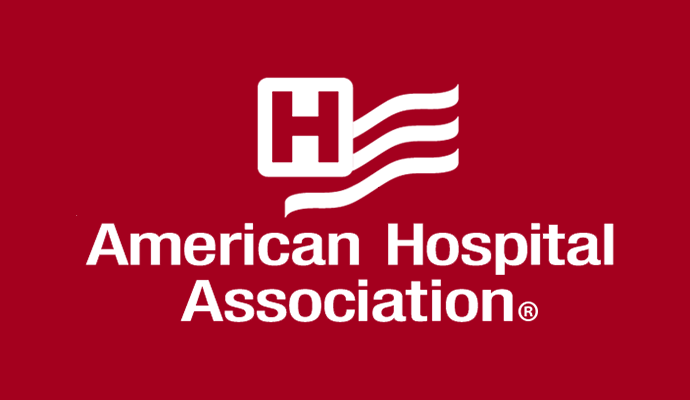AHA Requests Funding Increase to Support Pediatric Workforce
AHA and fellow healthcare organizations have urged Congress to support the pediatric workforce and provide $718.8 million in CHGME funding for FY 2023.

Source: AHA Logo
- The American Hospital Association (AHA) and 25 other healthcare organizations have asked Congress to increase funding for the Children’s Hospitals Graduate Medical Education (CHGME) program to help support the pediatric workforce.
Other notable organizations included the American Psychological Association, Association of American Medical Colleges, Children’s Hospital Association, and Federation of American Hospitals.
The CHGME program helps fund programs that train pediatricians and pediatric sub-specialists such as pediatric dentistry and pediatric psychology residents. CHGME supports training for around half of the country’s pediatricians and most pediatric specialists.
However, CHGME spending accounts for only 2 percent of total federal spending on graduate medical education (GME).
In order for pediatricians to adequately address the youth mental health crisis and provide other pediatric healthcare services, the letter stated that the program needs to receive funding at similar levels to other clinician training programs.
The FY 2022 Consolidated Appropriations Act included $375 million for the CHGME program, which helped closer align the program funding with other provider training programs. Still, the healthcare organizations stressed that more support is needed.
The groups have requested that Congress provide $718.8 million in CHGME funding for fiscal year (FY) 2023.
Current funding for CHGME training programs is only around half of the federal funding that the Medicare GME program receives. For example, funding is $79,813 per pediatric resident compared to $156,128 per resident in the Medicare GME program.
Without the increase in financing, the CHGME funding will fall to 46 percent of Medicare GME funding by 2026, according to the letter.
“Boosting support for the pediatric workforce is even more important as we face the growing challenges of the children’s mental health crisis and the impacts of COVID-19 on children and our pediatric healthcare workforce,” the organizations wrote.
“CHGME supports the training of the front-line providers who are caring for our children and youth during these emergencies. We cannot continue to fall behind—we must protect children’s access to care.”
Most of the initiatives to support the healthcare workforce during the COVID-19 pandemic have been directed toward general hospitals and physician practices.
For example, in December 2021, CMS announced the addition of 1,000 new Medicare residency slots to help address labor shortages in rural and underserved areas. The agency plans to distribute the slots over five years, starting on January 31, 2023.
In November 2021, Vice President Kamala Harris announced a $1.5 billion investment to fund federal programs that provide scholarships and loan repayment for healthcare students and workers. The funds also supported primary care residency programs, including those for family medicine, pediatrics, and pediatric internal medicine.
After joining the Sound the Alarms for Kids initiative, which aims to raise awareness and prompt action to support the mental health of children and adolescents, AHA urged Congress to address the behavioral healthcare provider shortage by increasing the number of Medicare residency slots for all physicians.
In addition, the trade organization requested that Congress establish scholarships, strengthen loan forgiveness programs, and offer other financial support to encourage providers to specialize in children’s behavioral healthcare.
